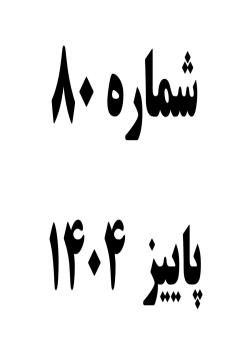Historical Backgrounds of the Advent of the Akhbarism and Tafkik School
Subject Areas : Epistemological and methodological researcher of historical researchnadia hadavand mirzaie 1 * , sayed alireza abtahi forooshani 2
1 - history department
2 - Islamic Azad university Najaf Abad
Keywords: historical backgrounds of the revival, Akhbarism, Tafkik School, New Akhbarism.,
Abstract :
As a result of extensive struggles of Vahid Behbahani (1205 A.H.) and Sheikh Jafar Kashif Al-Ghita for rehabilitation of Usuli institute and with the decline of Akhbarism (1212-1250 A.H.) at the reign of Fath-Ali Shah and murder of Mirza Muhammad Akhbari (1178-1232 A.H.) at the end of constitutional period, New Akhbarism first appeared in the form of councils, clubs, and schools such as Tafkik School at Pahlavi period. The condition in which Tafkik school was formed and its differences and similarities with Akhbarism are discussed in this article descriptively, historically, and analytically using available information. Despite the distinctions between both notions, their main commonalities are the attempt to preserve the purity of the religion and Revelation sources, and to prevent apostasy and radical rationalism which was emerged in the first Pahlavi period. Actually, radical rationalism is considered as one of the common causes of the revival of New Akhbarism in the beginning of Qajar dynasty and first Pahlavi period.

